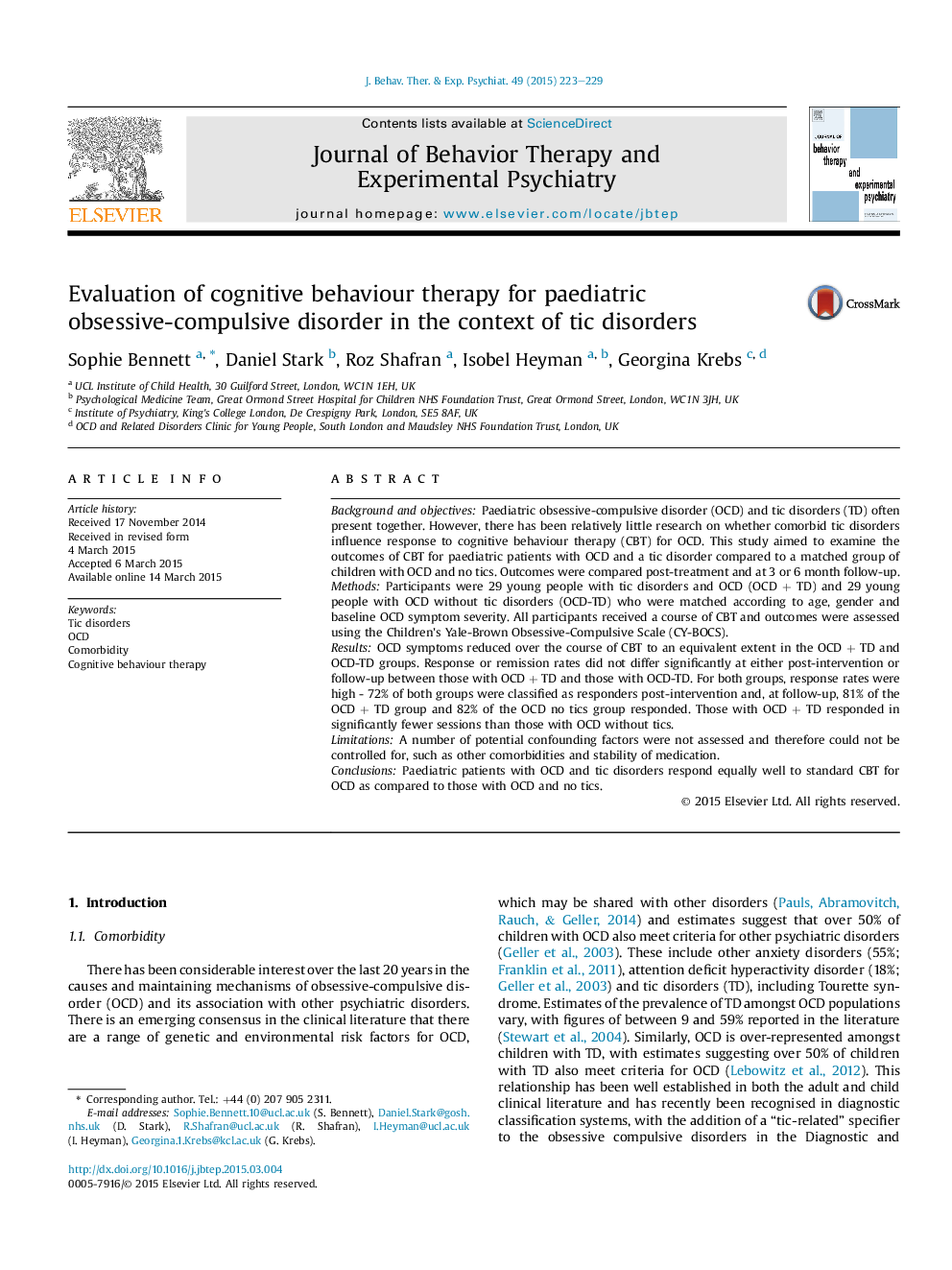| Article ID | Journal | Published Year | Pages | File Type |
|---|---|---|---|---|
| 910333 | Journal of Behavior Therapy and Experimental Psychiatry | 2015 | 7 Pages |
•Children needing treatment for OCD often have tics.•Children with OCD who had and did not have tics were recruited from the same clinic, and matched demographically.•Outcomes of cognitive behaviour therapy were equivalent and positive in both groups.•Children with OCD and comorbid tics benefit from standard OCD treatment.
Background and objectivesPaediatric obsessive-compulsive disorder (OCD) and tic disorders (TD) often present together. However, there has been relatively little research on whether comorbid tic disorders influence response to cognitive behaviour therapy (CBT) for OCD. This study aimed to examine the outcomes of CBT for paediatric patients with OCD and a tic disorder compared to a matched group of children with OCD and no tics. Outcomes were compared post-treatment and at 3 or 6 month follow-up.MethodsParticipants were 29 young people with tic disorders and OCD (OCD + TD) and 29 young people with OCD without tic disorders (OCD-TD) who were matched according to age, gender and baseline OCD symptom severity. All participants received a course of CBT and outcomes were assessed using the Children's Yale-Brown Obsessive-Compulsive Scale (CY-BOCS).ResultsOCD symptoms reduced over the course of CBT to an equivalent extent in the OCD + TD and OCD-TD groups. Response or remission rates did not differ significantly at either post-intervention or follow-up between those with OCD + TD and those with OCD-TD. For both groups, response rates were high - 72% of both groups were classified as responders post-intervention and, at follow-up, 81% of the OCD + TD group and 82% of the OCD no tics group responded. Those with OCD + TD responded in significantly fewer sessions than those with OCD without tics.LimitationsA number of potential confounding factors were not assessed and therefore could not be controlled for, such as other comorbidities and stability of medication.ConclusionsPaediatric patients with OCD and tic disorders respond equally well to standard CBT for OCD as compared to those with OCD and no tics.
